| 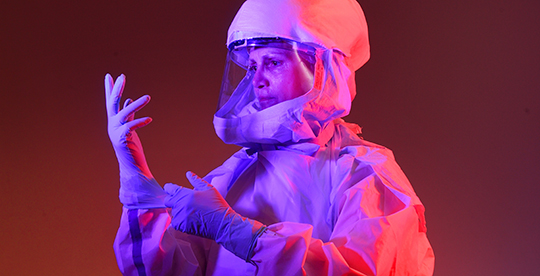 | | Five years ago, the world watched as the first of four patients with Ebola virus disease arrived at Emory University Hospital. At a time when little was known about caring for these patients, the university's Serious Communicable Diseases Unit (SCDU) successfully treated those with Ebola, creating protocols that are now the standard for deadly infections.
With Ebola still very much a threat--the World Health Organization recently declared the outbreak in the Democratic Republic of Congo a global health emergency--Emory's team of researchers and infectious disease experts is translating the learnings from 2014 to everyday patient care and working to find game-changing therapies for the disease. | Read more | |
| |
|  | CME program re-accredited with commendation | Join us in congratulating the SOM's Continuing Medical Education (CME) team for achieving Accreditation with Commendation by the Accreditation Council for Continuing Medical Education (ACCME). Examples of excellence cited by the reviewers included the team's collaborative relationships with stakeholders, its active involvement in supporting the strategic objectives of the School of Medicine, and its outstanding work in quality improvement. Standard accreditation by the ACCME renews on a 4-year cycle, but accreditation with commendation extends the time to renewal to 6 years. | |
| |
| Schulman named Foundations Director | David Schulman (medicine) has been appointed the new Foundations Director for the MD program beginning Sept. 1. He takes the reins from Dr. Gordon Churchward, who led the effort to create the Foundations Phase and then served as director for the past 12 years. Dr. Churchward will be spending additional time providing academic advising to our MD students.
Schulman has more than 17 years of experience as a clinician-educator and has received local, regional, and national recognition for excellence in teaching and outstanding contributions to medicine. He currently serves as the Pulmonary Module director and EBM course director for the Foundations Phase, is chair of the Required Clerkships subcommittee of the Executive Curriculum Committee, and directs the Integrations course for the MD program. | |
| |
| HOPE Awards honor exceptional house staff | Congratulations to the 2018-19 House Staff Organization Professionalism Excellence (HOPE) Award winners. The following individuals were selected by their peers for demonstrating exceptional professionalism.
Overall winner: Spencer Hutto (neurology)
Primary Care (Tie): Isabel Malone (emergency medicine) and Brandon Elliot Giberson (emergency medicine)
Primary Care - 2 (Tie): Caitlin Roberson Anderson (internal medicine) and Amalia Aldredge (internal medicine)
Surgery: Nealen Gordon Laxpati (neurosurgery)
Specialties: Denise Fay Chen (neurology)
Fellows: Alfonso Claudio Hernandez (infectious diseases) | |
| |
| 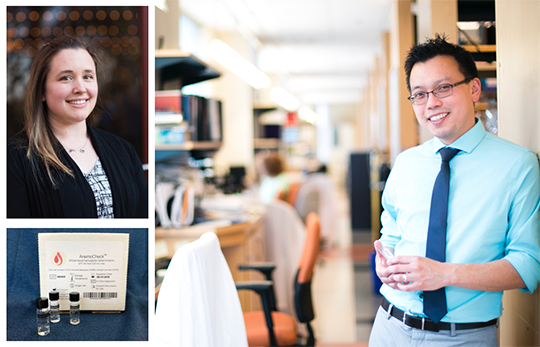 | | Anemia, or low blood hemoglobin levels, affects two billion people every year, including 83 million in the United States. A powerhouse partnership between Emory, Georgia Tech and Children's Healthcare of Atlanta, with the support of others, has developed a simple, cost-effective anemia test kit. It only uses a single drop of blood and produces easy-to-read results in under a minute.
AnemoCheck is the brainchild of Erika Tyburski, a graduate of Georgia Tech and current CEO of Sanguina, a biomedical start-up company out of Emory and Georgia Tech. AnemoCheck's development began as Tyburski's senior project in biomedical engineering. Wilbur Lam (biomedical engineering, pediatrics) and Siobhan O'Connor (CDC) advised Tyburski on the project.
"It was clear that health experts were concerned about the barrier to access for anemia testing, so we began brainstorming a solution to the problem," says Tyburski, who decided to pursue AnemoCheck full-time three weeks after graduating college. From the beginning, the project was centered around a team ethic that emphasized collaboration and communication.
Lam was impressed by Erika's initiative and the quick timeline of AnemoCheck's takeoff. "In a few short years, Erika and our lab have turned an undergraduate project into a commercialized product and Erika has transitioned from undergrad to CEO of our start-up company. Now she's my boss!" | Read more | |
| |
| Harper awarded Woodruff Scholar Early Independence Award | We are pleased to welcome Daniel Harper to the SOM as an assistant professor in Anesthesiology with a secondary appointment in Physiology. Harper is the 2018 recipient of the Woodruff Scholar Early Independence Award, which comes with a $50,000 award to support research and career development. Recipients of this honor have been identified as rising stars with outstanding early-career accomplishments.
Dr. Harper’s research focuses on sensation and pain. His contributions include insights into the mechanisms by which pain and other sensory signals are modulated differently in chronic pain patients. His work also sheds light on how pain signals interact with other somatosensory signals, including tactile and thermal signals. Dr. Harper is the recipient of a K99 NIH award that is transitioning to a three-year R00 award as he joins the Emory faculty.
| |
| |
| Lechowicz named Faculty Leader of Society System | Mary Jo Lechowicz (hematology and medical oncology) has been appointed the faculty leader of the Society System, an integral part of our MD curriculum. During orientation, each student is assigned to one of four Societies (named after four historic physicians) led by experienced clinician-educators called Small Group Advisors. The Small Group Advisor instructs students in professionalism and the art of patient care, patient-physician communication skills, and the principles of physical examination and diagnostic thinking. | |
| |
| 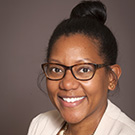 | Natalie A. Fields was named Director of Faculty Advancement and Inclusion in the SOM. Fields will partner with Executive Associate Dean Carolyn Meltzer (radiology) and other leaders across the SOM to innovate and support the strategic development and implementation of programs that promote faculty academic advancement, leadership and inclusion.
| | |
| | |  | Maura George (medicine) was selected for the Vulcan Teaching Excellence Award, which recognizes faculty members who demonstrate strong academic skills in the classroom and provide leadership and support in other areas of campus life. George helped develop the SOM's social medicine program and has served as course director of the social medicine elective, which teaches medical students and residents about the social determinants of health, patient advocacy and cultural competency.
| | |
|
| |
| 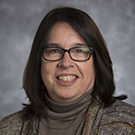 | Liz McCarty was elected President-elect of the Association of Academic Administrators in Pediatrics. McCarty is executive administrator and vice chair of administration for the Department of Pediatrics.
| | |
| | | 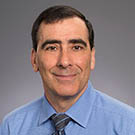 | Ignacio Sanz (medicine, pediatrics) was awarded the 2019 Lupus Insight Prize for discovering that certain little-understood immune system cells are a major source of harmful proteins for the disease. The award, which includes $100,000, was announced June 19 at the 19th Annual Meeting of the Federation of Clinical Immunology Societies.
| | |
|
| |
|  | Artificially intelligent neural interfaces: DARPA funds Emory/GT/Northwestern research | Paralyzed people moving their limbs or operating prosthetic devices by having machines decipher the electrical impulses in their nervous systems: it's an appealing vision, and one that is getting closer. Right now, when a computer "reads" someone's brain, the interface between brain and machine does not stay the same, so the computer needs to be recalibrated once or multiple times a day. It's like learning to use a tool, and having the weight and shape of the tool change.
To address this challenge, biomedical engineers at Emory and Georgia Tech, working with colleagues at Northwestern University, were awarded a $1 million grant from DARPA (Defense Advanced Research Projects Agency). The two-phase grant begins with $400,000 for six months, and can advance to a total of $1 million over 18 months.
Chethan Pandarinath (biomedical engineering) and Lee Miller (professor of physiology, physical medicine & rehabilitation, biomedical engineering at Northwestern University), are combining artificial intelligence-based approaches that their laboratories have developed that enable the decoding of complex signals from the nervous system controlling movement. The scientists plan to develop algorithms that periodically and automatically recalibrate so that nervous system "intent" can be decoded smoothly and without interruption.
The project is being funded under DARPA's $2 billion AI Next campaign, which includes a "high-risk, high-payoff" Artificial Intelligence Exploration program. DARPA officials see the campaign as part of a third wave of artificial intelligence research. The first wave focused on rule-based systems capable of narrowly defined tasks. The second wave, beginning in the 1990s, created statistical pattern recognizers from large amounts of data, which are capable of impressive feats of language processing, navigation and problem-solving. However, they do not adapt to changing conditions, offer limited performance guarantees, and are unable to provide users with explanations of their results. The third wave, in contrast, will focus on contextual adaptation and enabling machines to function reliably despite massive volumes of changing or even incomplete information. | Read more | |
| |
| | The Centers for Disease Control and Prevention (CDC) has awarded $4.2 million over the next five years to fund the Injury Prevention Research Center at Emory (IPRCE), a center designed to reduce the top causes of injury and injury death in Georgia and the Southeast through research, education and outreach. IPRCE is one of nine centers in the U.S. being funded by the CDC's National Center for Injury Prevention and Control under the Injury Control Research Center program.
Led by the Department of Emergency Medicine, IPRCE is a multi-institutional center that has collaborations with 12 universities, over 40 faculty members and more than 50 injury prevention organizations. It is the only center of its kind in Georgia. The team works together to provide a multidisciplinary vision for research and prevention to reduce the burden of injury throughout the state and beyond. | Read more | |
| |
|
